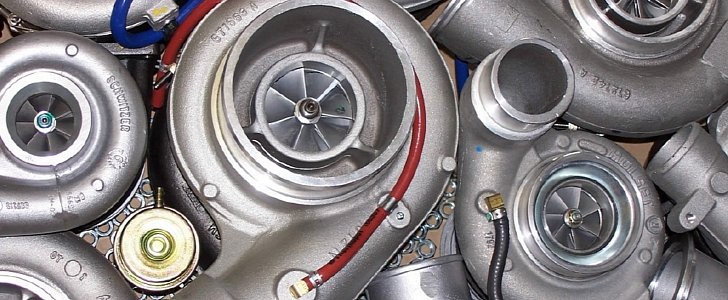How Engines For Africa Delivers Value and Efficiency
How Engines For Africa Delivers Value and Efficiency
Blog Article
A Full Guide to Picking the Right Engine for Your Task
Picking the ideal engine for your task is a vital decision that can dramatically impact its overall success. It is critical to diligently define your task needs, review performance needs, and take into consideration user-friendliness together with other necessary aspects. Furthermore, recognizing the neighborhood assistance available and looking at expense implications can further fine-tune your option. Each of these elements plays a crucial role in guaranteeing that your picked engine not only meets prompt objectives yet additionally aligns with long-term goals. As we check out these factors to consider, you may find that the nuances of each element disclose greater than initially prepared for.
Specify Your Task Needs
Defining your job requires is a critical action in selecting the suitable engine for effective implementation. A thorough understanding of your project's goals will guide you in recognizing the attributes and abilities called for from an engine. Begin by laying out the extent of your project, including the wanted performance, target market, and the details outcomes you intend to achieve.
Following, take into consideration the technological needs that align with your job objectives. This includes assessing the compatibility of the engine with existing systems, along with the programming languages and frameworks that will certainly be used. Furthermore, analyze the level of scalability called for to fit future development or modifications sought after.
Budget plan restraints likewise play a vital duty in specifying your task requires. Establish a clear monetary framework to guide your decision-making procedure, ensuring that the engine picked fits within your budget while giving the required capability.
Evaluate Efficiency Demands

Next, think about the scalability of the engine. Assess whether it can manage raised workloads as your job grows. Engines that sustain straight scaling are commonly preferable for larger applications. Additionally, review the engine's performance under different problems, such as peak use situations, to ensure it fulfills your integrity standards.
Think About Ease of Use
While technological requirements are important, the simplicity of usage of an engine can considerably impact the development process and general project success. An user-friendly interface, clear documents, and structured operations can significantly minimize the understanding curve for programmers, enabling them to concentrate on imagination and analytic instead of coming to grips with complicated devices.
When assessing an engine's convenience of usage, think about the onboarding experience. A well-structured intro, full with tutorials and sample jobs, can promote a smoother change for brand-new users. Furthermore, the clarity and comprehensiveness of the engine's documents play a crucial duty; comprehensive overviews and API references can encourage programmers to repair and implement functions efficiently.
One more element to think about is the engine's customization capabilities. An engine that permits for easy alterations can be extra straightforward, as developers can customize it to fit their particular requirements without considerable hassle. Examine the workflow integration with systems and tools you currently make use of. A cohesive ecosystem can improve efficiency and lower friction during the growth process. Inevitably, picking an engine that prioritizes convenience of use can lead to a much more productive and pleasurable growth experience.
Assess Neighborhood and Support
The toughness of an engine's area and assistance network can significantly affect a developer's experience and success. A vivid area often indicates a riches of common expertise, sources, and fixing support that can enhance your task's development procedure. When assessing an engine, consider the dimension and activity level of its neighborhood. Bigger neighborhoods usually supply article extra online forums, tutorials, and third-party plugins, making it possible for programmers to discover solutions more efficiently.
Additionally, assess the availability of main support networks. Reputable documentation, receptive consumer support, and routine updates are essential for resolving technological issues and maintaining your task on the right track. Engines For Africa. Energetic communities additionally cultivate cooperation, providing opportunities for networking and comments, which can be important, especially for independent designers or tiny teams
Furthermore, examine the visibility of community-run events, such as meetups or hackathons. These events can enrich your understanding of the engine while connecting you with possible partners and skilled users. In summary, a durable community and assistance system not only enhance growth yet also develop an atmosphere for learning and technology, eventually enhancing the probability of your project's success.
Compare Price and Licensing Choices
Spending plan factors to consider play a crucial role in selecting the best engine for your task, as the cost and licensing choices can considerably affect both temporary costs and long-term viability. Engines For Africa. Various engines offer differing pricing frameworks, which can include one-time acquisition costs, registration designs, or revenue-sharing arrangements based on your project's earnings

Licensing choices also vary considerably. Some engines are open-source, supplying flexibility see post and community-driven support, while others may require proprietary licenses that restrict use and circulation. Comprehending the implications of each licensing model is essential, as it influences possession civil liberties, future scalability, and possible lawful commitments.
Final Thought
In conclusion, choosing the appropriate engine for a project requires a thorough evaluation of specified job requirements, efficiency needs, simplicity of use, community assistance, and cost factors to consider. By systematically dealing with these crucial aspects, decision-makers can make certain alignment with both existing and future task needs. An educated choice inevitably boosts the probability of task success, making it possible for reliable resource allowance and making best use of potential end results within the specified budgetary restrictions.
Choosing the ideal engine for your job is an essential choice that can Related Site significantly affect its overall success.Specifying your project requires is a vital action in picking the appropriate engine for successful implementation. An extensive understanding of your task's objectives will assist you in identifying the attributes and abilities required from an engine.Once you have a clear understanding of your job needs, the following step is to assess the efficiency demands of the engine.In verdict, picking the ideal engine for a project demands a thorough analysis of defined job needs, efficiency requirements, ease of use, area assistance, and expense factors to consider.
Report this page